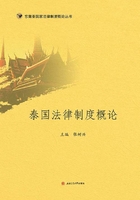Ath. There was small credit to us, Cleinias, in defeating them;and the discredit was, not that the conquerors did not win gloriousvictories both by land and sea, but what, in my opinion, broughtdiscredit was, first of all, the circumstance that of the three citiesone only fought on behalf of Hellas, and the two others were soutterly good for nothing that the one was waging a mighty waragainst Lacedaemon, and was thus preventing her from renderingassistance, while the city of Argos, which had the precedence at thetime of the distribution, when asked to aid in repelling thebarbarian, would not answer to the call, or give aid. Many thingsmight be told about Hellas in connection with that war which are farfrom honourable; nor, indeed, can we rightly say that Hellasrepelled the invader; for the truth is, that unless the Atheniansand Lacedaemonians, acting in concert, had warded off the impendingyoke, all the tribes of Hellas would have been fused in a chaos ofHellenes mingling with one another, of barbarians mingling withHellenes, and Hellenes with barbarians; just as nations who are nowsubject to the Persian power, owing to unnatural separations andcombinations of them, are dispersed and scattered, and live miserably.
These, Cleinias and Megillus, are the reproaches which we have to makeagainst statesmen and legislators, as they are called, past andpresent, if we would analyse the causes of their failure, and find outwhat else might have been done. We said, for instance, just now,that there ought to be no great and unmixed powers; and this was underthe idea that a state ought to be free and wise and harmonious, andthat a legislator ought to legislate with a view to this end. Nor isthere any reason to be surprised at our continually proposing aims forthe legislator which appear not to be always the same; but we shouldconsider when we say that temperance is to be the aim, or wisdom is tobe the aim, or friendship is to be the aim, that all these aims arereally the same; and if so, a variety in the modes of expression oughtnot to disturb us.
Cle. Let us resume the argument in that spirit. And now, speaking offriendship and wisdom and freedom, I wish that you would tell me atwhat, in your opinion, the legislator should aim.
Ath. Hear me, then: there are two mother forms of states fromwhich the rest may be truly said to be derived; and one of them may becalled monarchy and the other democracy: the Persians have the highestform of the one, and we of the other; almost all the rest, as I wassaying, are variations of these. Now, if you are to have liberty andthe combination of friendship with wisdom, you must have both theseforms of government in a measure; the argument emphatically declaresthat no city can be well governed which is not made up of both.
Cle. Impossible.
Ath. Neither the one, if it be exclusively and excessivelyattached to monarchy, nor the other, if it be similarly attached tofreedom, observes moderation; but your states, the Laconian andCretan, have more of it; and the same was the case with theAthenians and Persians of old time, but now they have less. Shall Itell you why?
Cle. By all means, if it will tend to elucidate our subject.
Ath. Hear, then:-There was a time when the Persians had more ofthe state which is a mean between slavery and freedom. In the reign ofCyrus they were freemen and also lords of many others: the rulers gavea share of freedom to the subjects, and being treated as equals, thesoldiers were on better terms with their generals, and showedthemselves more ready in the hour of danger. And if there was any wiseman among them, who was able to give good counsel, he imparted hiswisdom to the public; for the king was not jealous, but allowed himfull liberty of speech, and gave honour to those who could advisehim in any matter. And the nation waxed in all respects, because therewas freedom and friendship and communion of mind among them.
Cle. That certainly appears to have been the case.
Ath. How, then, was this advantage lost under Cambyses, and againrecovered under Darius? Shall I try to divine?
Cle. The enquiry, no doubt, has a bearing upon our subject.
Ath. I imagine that Cyrus, though a great and patriotic general, hadnever given his mind to education, and never attended to the orderof his household.
Cle. What makes you say so?
Ath. I think that from his youth upwards he was a soldier, andentrusted the education of his children to the women; and they broughtthem up from their childhood as the favourites of fortune, who wereblessed already, and needed no more blessings. They thought thatthey were happy enough, and that no one should be allowed to opposethem in any way, and they compelled every one to praise all thatthey said or did. This was how they brought them up.
Cle. A splendid education truly!
Ath. Such an one as women were likely to give them, and especiallyprincesses who had recently grown rich, and in the absence of the men,too, who were occupied in wars and dangers, and had no time to lookafter them.
Cle. What would you expect?
Ath. Their father had possessions of cattle and sheep, and manyherds of men and other animals, but he did not consider that thoseto whom he was about to make them over were not trained in his owncalling, which was Persian; for the Persians are shepherds-sons of arugged land, which is a stern mother, and well fitted to producesturdy race able to live in the open air and go without sleep, andalso to fight, if fighting is required. He did not observe that hissons were trained differently; through the so-called blessing of beingroyal they were educated in the Median fashion by women and eunuchs,which led to their becoming such as people do become when they arebrought up unreproved. And so, after the death of Cyrus, his sons,in the fulness of luxury and licence, took the kingdom, and firstone slew the other because he could not endure a rival; and,afterwards, the slayer himself, mad with wine and brutality, losthis kingdom through the Medes and the Eunuch, as they called him,who despised the folly of Cambyses.
Cle. So runs the tale, and such probably were the facts.
Ath. Yes; and the tradition says, that the empire came back to thePersians, through Darius and the seven chiefs.
Cle. True.














